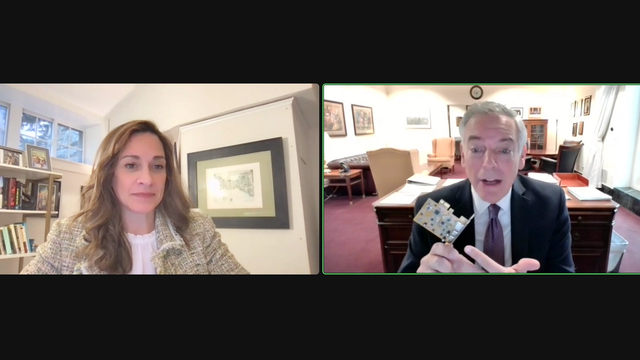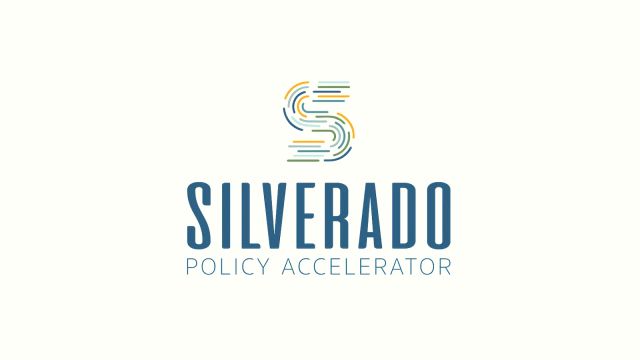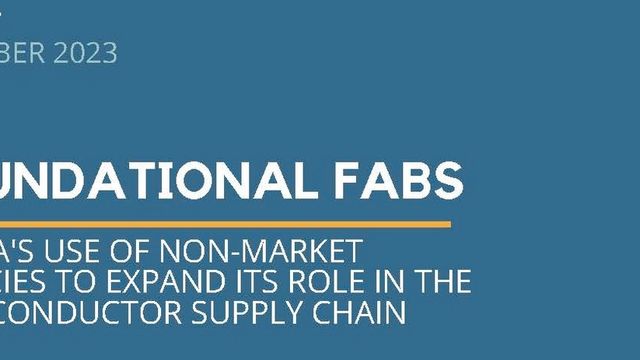
Silverado Policy Accelerator • Feb 24, 2022
Event Recap: “2022 Export Enforcement Priorities"Silverado's Executive Director Sarah Stewart sits down with the newly-confirmed Assistant Secretary for Export Enforcement Matthew S. Axelrod.
A conversation between Rep. Ro Khanna, Rep. Mike Gallagher, the Cyberspace Solarium Commission's Mark Montgomery, and Silverado's Dmitri Alperovitch and Sarah Stewart

Table of contents
Author
Silverado Policy Accelerator
Silverado Policy Accelerator
Subscribe to our newsletter
SubscribeOn December 7, Silverado Policy Accelerator hosted "Ante Up: Going All In on the Global Chips Race," a virtual discussion about the economic and national security considerations driving the U.S.'s strategy on semiconductors. The discussion was moderated by Silverado's Co-Founder and Executive Chairman Dmitri Alperovitch and featured Congressmen Ro Khanna (D-CA) and Mike Gallagher (R-WI), the Cyberspace Solarium Commission's Mark Montgomery, and Silverado's Executive Director Sarah Stewart.
Find a full recap of the event below, with key takeaways quotations from the panelists. A full recording of the event is available here.
Key Takeaway: The current concentration of semiconductor production in East Asia poses major national security risks for the United States.
Key Takeaway: The U.S. needs to invest in its domestic semiconductor industry and work with allies to diversify the allied supply chain away from East Asia.
Key Takeaway: As the U.S. works to resolve the ongoing shortage of semiconductors, it should use this opportunity to take an in-depth look at its current supply chain vulnerabilities. Now is an opportune moment for the U.S. government to identify key vulnerabilities and invest in addressing those vulnerabilities.
Key Takeaway: U.S. The Innovation and Competition Act (USICA)—which includes $52 billion for investments in the U.S. semiconductor industry—is expected to pass the House in January.
Key Takeaway: “Industrial strategy” shouldn’t always be a dirty term, and in the case of semiconductors, the U.S. needs some sort of industrial policy to compete with China’s unfair trade and industrial practices.
Key Takeaway: The Commerce Department will need access to high-quality data to strategically and efficiently allocate resources from USICA and understand the most vulnerable aspects of the supply chain.
Key Takeaway: USICA needs robust guardrails to ensure that federal investments in the U.S. semiconductor industry don’t leak out its back door and give America’s competitors—especially China—an unfair advantage.
Key Takeaway: The U.S. currently outcompetes China in innovation, with the U.S. leading in I.P. and semiconductor design. But the U.S. would benefit from greater protection against I.P. and trade secret theft.
Key Takeaway: The U.S. should coordinate closely with allies on export controls and foreign investment reviews for key semiconductor technology.
Key Takeaway: Competition on rare earth minerals deserves more attention. China currently produces 10-time more silicon—a critical mineral in semiconductor manufacturing—than the U.S.
Explore more insights and analysis from our research team.

Silverado Policy Accelerator • Feb 24, 2022
Event Recap: “2022 Export Enforcement Priorities"Silverado's Executive Director Sarah Stewart sits down with the newly-confirmed Assistant Secretary for Export Enforcement Matthew S. Axelrod.

Silverado Policy Accelerator • May 15, 2023
REPORT: "Lithium at a Crossroads: Ten Takeaways on the Global Lithium Market"Silverado's report explores the trajectory of the global lithium market and its implications for allied national security and the green energy transition.

Silverado Policy Accelerator • Oct 26, 2023
Webinar Recap: Foundational FabsSilverado's experts discussed a new report on China's active involvement across the semiconductor supply chain.